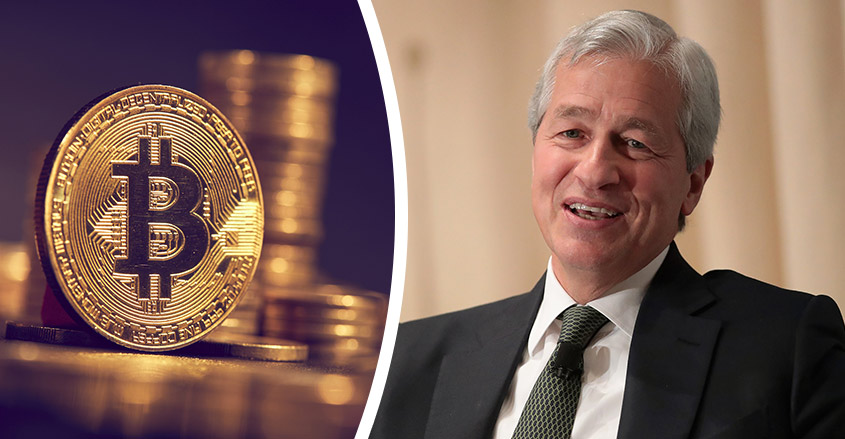Jamie Dimon, the CEO and chairman of investment bank JPMorgan who said last year that Bitcoin was a “fraud,” seems to have changed his mind on the matter.
Nevertheless, Dimon says, don’t expect governments to stand back and do nothing — no currency exists outside their control.
While at a JPMorgan conference in San Francisco on Jan. 9, Dimon said he regretted comments he made earlier, in September 2017.
This is quite a change of heart for someone that said he would fire any JPMorgan employee for trading Bitcoin on company accounts for being “stupid.”
Dimon went on to say that he doesn’t have any interest in crypto himself, and that he believes the governments will not take kindly to its decentralized nature.
Asked about the underground economy around cryptocurrency in 2015, Dimon replied: “It’s just not gonna happen, you’re wasting your time. This is my personal opinion. There will be no real non-controlled currency in the world. There’s no government that’s gonna put up with it for long.”
Whether Dimon is correct or not, there is no denying the growth and power of cryptocurrency right now. As of today, a single Bitcoin is worth more than $14,000 USD.
The total crypto market cap is north of $700 million and made up of almost 1,400 coins. What started as a project in 2007 by Satoshi Nakamoto, the mysterious and unidentified inventor of Bitcoin, is now a worldwide phenomenon.
Interest from investors has grown substantially but not everyone is looking to generate profits from cryptocurrency. Digital currencies offer users a plethora of benefits, earning the attention of even average consumers.
For one, digital coins can provide a higher level of anonymity as transactions are not associated with your personal identity. For those that value privacy, this is huge advantage.
Sales taxes also can be avoided with cryptocurrency, appealing to people in high VAT countries. Financial authorization and transfers can occur in an instant with little to no fees.
Government coins
Some governments are considering implementing digital currencies themselves. Venezuela says it will create an oil-backed cryptocurrency, to be called the Petro.
In fact, Dimon believes that the most successful coins will be those that are backed by a government. “You can have crypto yen and dollars and stuff like that. ICOs you have to look at individually,” he said.
An ICO is an initial coin offering, similar to an initial public offering most are familiar with. When an ICO campaign is launched, a percentage of the cryptocurrency is given to early supporters in exchange for legal tender.
Doing on offering aids startups by allowing them to bypass the difficult process of receiving funding from banks or venture capitalists.
For now, cryptocurrency remains a decentralized and a quickly evolving technology. Whether governments will control it as Dimon believes is hard to say, though it seems that crypto is here to stay in one form or another.


